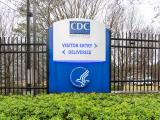Jan 8, 2013
Proposed food safety rules renew worries about FDA funding
The recent unveiling of far-reaching food safety rules is renewing concerns about the US Food and Drug Administration's (FDA's) financial ability to enforce the FDA Food Safety Modernization Act, Food Safety News (FSN) reported today. The cost of implementing the law has been estimated at $1.4 billion over 5 years, but the FDA received only a $50 million increase in the last budget, the story noted. Michael Taylor, FDA deputy commissioner for food and veterinary medicine, told FSN that the agency needs more money for technical assistance, education, research, and building state partnerships. The FDA will rely on states to help enforce the new rules, but states are financially strapped, too, Taylor said at a Jan 4 press conference. The story said the FDA hopes to collect fees from the food industry to help cover the enforcement costs; its proposed 2013 budget includes $222 million in food facility registration fees, which the food industry opposes. Taylor said he recognizes that the fees are controversial, but they will be necessary if Congress won't appropriate enough money to implement the new law. The law requires major increases in inspections of food facilities, which will take more money. The proposed rules released last week deal with produce safety and preventive controls in food processing facilities.
Jan 8 FSN story
Jan 4 CIDRAP News story on the new rules
Scientists find possible autoimmune factor in persistent Lyme arthritis
Researchers say they have discovered an autoimmune mechanism that may help explain why some Lyme disease patients continue to have symptoms long after appropriate antibiotic treatment. The management of such patients has been controversial, and patient groups have demanded long-term antibiotics, according to a Medpage Today report on the findings. The researchers, from Harvard Medical School, suggest that activated T- and B-cell responses to an autoantigen called endothelial cell growth factor (ECGF) may explain persistent arthritis in a small percentage of Lyme disease patients, the story said. T-cell responses to ECGF were seen in 38% of peripheral blood mononuclear cells from patients with Lyme arthritis that did not resolve with antibiotic treatment. In addition, B-cell-produced antibodies to ECGF were found in 17% of such patients but in no healthy controls. "T and B cell responses to ECGF occur in a subset of patients with Lyme disease, particularly in those with antibiotic-refractory arthritis, providing the first direct evidence of autoimmune T and B cell responses in this illness," says the Harvard researchers' report, published in the January issue of Arthritis & Rheumatism.
Jan 3 Medpage Today story
January Arth Rheum abstract
Public health deans condemn CIA vaccine ruse
Deans from 12 of the nation's schools of public health signed a letter sent to President Obama yesterday condemning the Central Intelligence Agency's (CIA's) use of a vaccine front in the search for Osama Bin Laden, the New York Times reported yesterday. The CIA has admitted that it hired a Pakistani doctor to administer a hepatitis B vaccine to people in bin Laden's compound in an effort to obtain DNA samples from the residents. The plan is among a host of factors that has fueled recent waves of violence against polio vaccination workers. Militants have also used the attacks as retaliation for US drone strikes and have claimed that the workers are spies and that the vaccines represent a secret plan to sterilize Muslims. Deans from the following universities' schools of public health signed the letter: Tulane, Emory, Minnesota, Harvard, Columbia, Washington, George Washington, California at Los Angeles, Johns Hopkins, Michigan, North Carolina, and California at Berkeley.
Jan 7 Times story
Jan 6 letter
Centralized reminder system lifts kids’ immunization rates
Timely preschool vaccination reminders from state or local health departments are better at boosting rates of childhood immunization and are more cost-effective than similar efforts by private medical practices, according to a recent study. The cluster-randomized trial took place during the summer of 2010 in 14 Colorado counties, 8 rural and 6 urban, according to the study in the American Journal of Public Health. Health departments used the central Colorado Immunization Information System (CIIS), and medical practices in the different counties were invited to attend CIIS training and offered financial support for reminder mailing activities. Ten clinics took part in the study. After 6 months, researchers compared the percentages of kids who became up to date with their immunizations. Of 32,125 children who needed updates, 18.7% who were contacted by health departments became current, compared with 12.8% in the practice-based recall. The population-based method was also more affordable, costing $17 per child compared with $62 per child with the practice-based system. Allison Kempe, MD, MPH, the study's primary author and director of Children's Outcome Research at Children's Hospital Colorado, said in a University of Colorado press release yesterday that the findings support a new model for conducting immunization reminders. "We think the most successful approach is a truly collaborative one between practices, health departments, and the site immunization registry."
Jan 7 University of Colorado press release
Dec 13 Am J Public Health abstract


















